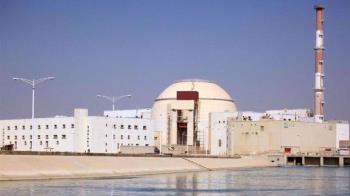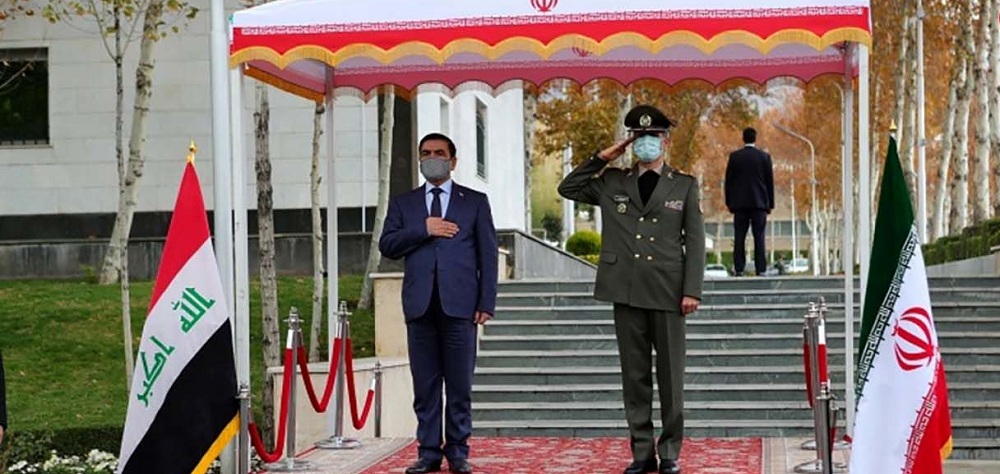Alwaght- Boosting security and military capabilities of post-2003 Iraq has been one of the key obsessions of the Iraqi politicians and a public demand.
This practically gained more significance in the eyes of the Iraqis especially after the emergence of the ISIS terrorist group and the failure of the Western-trained and armed Iraqi army in 2014 and also the failure of the intelligence apparatus to predict the rise of the terrorist group in the country.
Meanwhile, a review of military and security partnership with foreign parties is presenting itself as a binding necessity for a big part of the politicians, elites, and also the Iraqi people.
With this necessity growing, due to territorial neighborhood and long common borders, religious and cultural commonalities, political unity, and massive economic partnership, along with common threats and interests, Iran presents itself as the central candidate for striking security and military deals with Iraq.
Motivated by this necessity, earlier this week, Iraqi Defense Minister Juma Anand Saadoun led a high-ranking military delegation to Tehran and was formally received by his Iranian counterpart General Amir Hatami. Saadoun, visiting Tehran at an official invitation of General Hatami, met with Iranian political and military officials with the core theme of the discussions being bilateral military and security cooperation boost.
On Saturday, the Chief of Staff for Iranian Armed Forces General Mohammad Bagheri announced that Iran and Iraq have written a defense cooperation document. “It is passing its final phases and will be signed in the near future,” he said.
US exit from Iraq and Baghdad’s security myth
Over the past two decades, the US has been the main party of the security and military pacts with Iraq on the provision of Baghdad’s needs in these areas. However, Washington never acted as a real ally to Baghdad as was expected by Iraq in the agreements with Washington.
When ISIS swept through Iraq in 2014, the US turned a deaf ear to the Iraqi call for help. In a short time as a result, the terrorist fighters seized control of vast parts of the country, mainly the western and central provinces.
Not only did the US not stand to its commitments under the 2008 security deal but also it continued its military presence in Iraq not as an ally but as an occupying force.
According to the 2008 agreement between the two countries, the US had to remove its forces from the Arab country by December 31, 2011. But each time Washington evaded the deadline under an excuse. Even the White House used the emergence of ISIS— which is according to an abundance of proofs and documents was an actor of a scenario written by American, Saudi, and Israeli intelligence services— as a pretext to increase forces in Iraq, unleashing to Iraq a source of big security challenges.
The US several times took military action against the Popular Mobilization Forces (PMF) of Iraq, voluntary forces founded in opposition to ISIS in 2014 and a sturdy blockade in the face of ISIS advances and partition of the country. In the late days of 2019, US fighter jets launched air raids on positions of the 45th and 46th brigades of the PMF in the border region of Qaem west of Al-Anbar province, killing over 30 anti-terror forces and injuring dozens of others. Qaem region is key to shape a security belt linking Tehran to Baghdad and Damascus. ISIS had managed to use this region as an escape and force relocation gate, launching terrorist actions both in Syria and Iraq.
The attacks on the PMF positions took place while a 2016 parliamentary bill recognized the forces as official and legal armed forces acting directly under the command of the prime minister of Iraq who is the commander-in-chief. The attacks were condemned by people, government officials, and political and executive figures as a violation of Iraq’s national sovereignty and territorial integrity.
The question of the legitimacy of the US military presence in Iraq reached its summit when the White House ordered the assassination of commander of Iran's Quds Force’s General Soleimani and PMF’s Deputy Commander Abu Mahdi Al-Muhandis in January. The assassination operation drew millions of Iraqis to the streets protesting and calling for the expulsion of the Americans from their country. A parliamentary bill for the expulsion of foreign troops ensued less than a week after the Baghdad Airport drone operation. But instead of bowing to the public and political will, the US threatened Iraq with unprecedented sanctions and further ridiculed Iraq's sovereignty by deploying Patriot aide defense systems to the country.
This has turned into a security myth to the Iraqi government. On the one hand, the PMF forces warned that if the US declined to remove its troops, they would be treated as occupying and hostile forces. On the other hand, the ISIS remnants every now and then carry out blind attacks in the central regions to cause insecurity and ethno-sectarian gaps, while the government is heavily grappling with the economic crisis and the coronavirus pandemic.
Iran the right choice for Iraq military and security alliance
The ISIS rise experience accentuates for Iraq the need to diversify its foreign alliances. Iran stands as a favorable choice from a set of aspects.
First, Iran stood by Iraq in the hardest times, mainly in the anti-terror battle. Tehran spared to effort to support the neighboring country and even itself sustained high costs.
Secondly, the two countries have a highly successful military and security cooperation record. Four-party command and intelligence center in Baghdad, which brought together Russia, Iran, Iraq, and Syria, with an aim for intelligence exchange to fight ISIS was established in 2015 with the coordination of the two neighbors. Since then, the four countries have been meeting and updating their data and actions against terrorism.
The exchange of information, especially the provision of data to the Iraqi and Syrian forces and actions against ISIS and other takfiri terrorists in Syria, is the most important and successful purpose of this center.
In 2017, Tehran and Baghdad signed a MoU, starting massive defense cooperation in the agreed-upon areas. Bolstering partnership and exchanging experiences in the fight against terrorism and radicalism, border security, and technical, logistical, and training support are the main terms of the MoU.
In such conditions, a record of successful security partnership, the lifting of Iran arms embargo according to the United Nations Security Council resolution, and Iran’s bulk of military, security, and intelligence specialties and capabilities present Tehran as a vital security partner to Baghdad. The visit to Tehran of the Iraqi defense minister, with the agreements reached, marks a long step in this course.



























